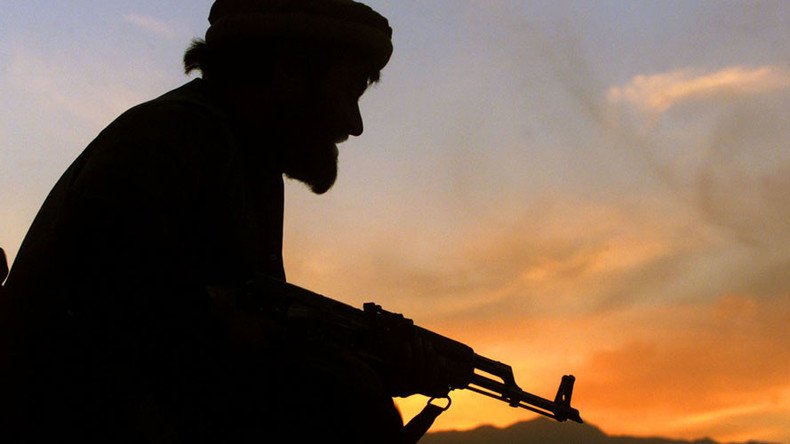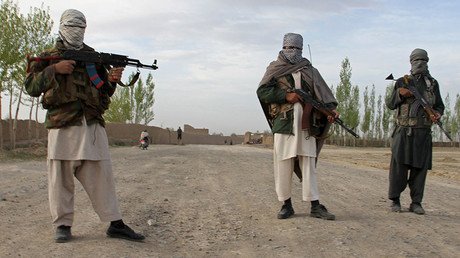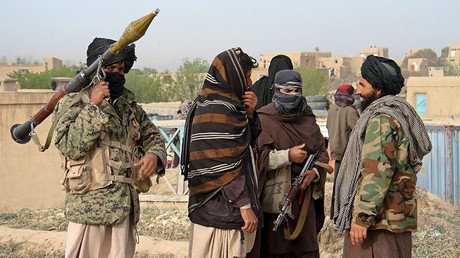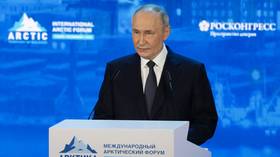‘US military presence in Mideast only serves to benefit jihadist groups’

Repeated errors by the US and its inability to understand the bigger picture in the Middle East, as well as its wars in the region, will continue with no end in sight for millions of civilians, says Matthew Hoh, a former US State Department official.
A Taliban splinter group previously thought to have been defeated recently announced a new leader and its readiness to fight "foreign invaders" in Afghanistan. After the assassination last year of the faction’s previous chief, Mullah Akhtar Mansoor, his nephew Emdadullah Mansoor was elected as the new head of the group and promised to avenge the death of his uncle.
According to US think tank Stratfor, Taliban infighting is one of the main factors complicating America's military exit from the region. Islamic State (IS, formerly ISIS/ISIL) is another extremist organization with a foothold in the east of the country.
RT: You became the first American official to resign in protest over America's policies in Afghanistan. What made you do that?
Matthew Hoh: I resigned in 2009. I just failed to believe the American policy was the policy that objectives could be reached, or that it was a policy that was worth achieving. I saw our presence in Afghanistan as fueling the insurgency, and I saw our presence in Afghanistan as not doing anything to combat or diminish international terrorist groups such as Al-Qaeda. And here we are seven years later, and the war in Afghanistan continues. Al-Qaeda has a presence still in many, many countries. And now we have a new threat, or a new enemy in a form of the Islamic State.
RT: What was the most challenging thing for you during your posting?
MH: The most challenging aspect of it was the deafness of American leaders wanting to win in Afghanistan. The blindness and the deafness towards the corruption of the Afghan government, to the fact that Afghanistan has been in a civil war since the 1970’s that predated the Soviet invasion, and that we were backing one side in that civil war. By doing so we were only prolonging the conflict and in many ways escalating the conflict…
Seven years later, a record number of civilians are being killed in Afghanistan. The ISIS is now in Afghanistan; the government is very fragmented; opium production is at record levels, etc., etc. and the cost has been many thousands of American and Afghan lives and hundreds of billions of dollars with no end in sight to the violence and to the chaos.
RT: Was the US involvement in Afghanistan justified?
MH:… History didn’t start at 9/11, and certainly the American president at that time, George Bush, was under tremendous political pressure to do something. In hindsight 15 years later…it is easy to say we shouldn’t have gone into Afghanistan. The real question is: our role in Afghanistan prior to 9/11; supporting the civil war; not supporting peace efforts in the years prior to 9/11; our support for groups like Al-Qaeda in the 1980s and in the early 1990s before they turned on us - this is the blowback that people speak about.
So I think it is important when we talk about 9/11 not to allow history to start on that day. But rather to look at the things that led up to it – the causes, and those things – forces, conditions that still exist.
So this massive American military presence throughout the Middle East only serves to the to these various jihadist groups – groups like Al-Qaeda and its Al-Nusra [Front] allies, ISIS, the Taliban in their recruiting of Muslim men who want to fight the invader, who want fight the infidel. So by not understanding the bigger picture, but not understanding the history, and by continuing to commit the same errors throughout the Middle East, these wars just to continue to go on again with unfortunately no end in sight for the millions of people living in those countries.
RT: There are now reports from Afghan officials that the Taliban might be forming an alliance with ISIL - what could have led to this?
MH: I think those reports need to be taken with a grain of salt. This may be the Afghan government afraid that the American military is going to fully leave Afghanistan, so say: “Hey, if you leave, the ISIS is going to come in.” But there is certainly is an ISIS presence in Afghanistan. There have been many reports of the Afghan Taliban and the ISIS fighting each other. Now if the reports are true, the cooperation is true – that certainly is unsettling, but that would be to be expected. The Afghan Taliban and the ISIS by no means would be their natural allies, but certainly ‘the enemy of my enemies is my friend’ principle would apply where they might decide to work together to fight the Western forces as well as the Afghan government.
The statements, views and opinions expressed in this column are solely those of the author and do not necessarily represent those of RT.















